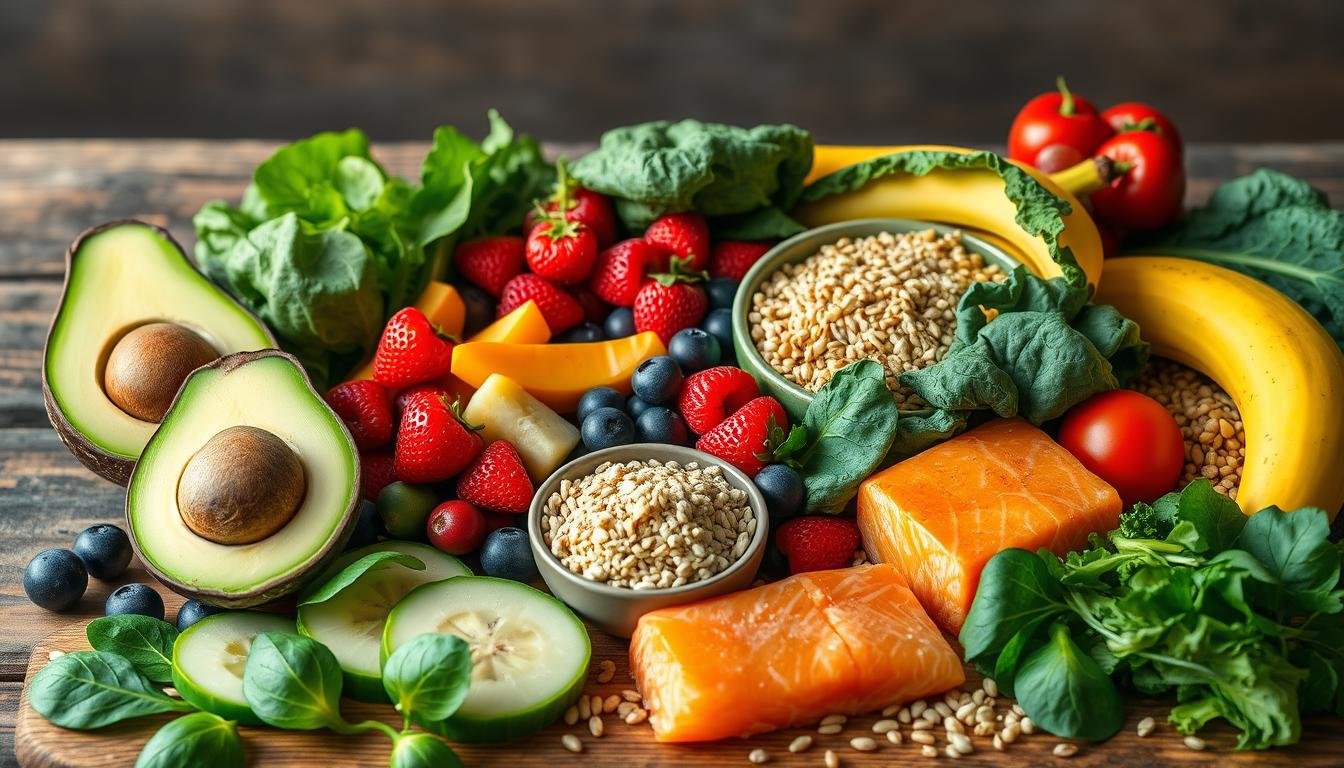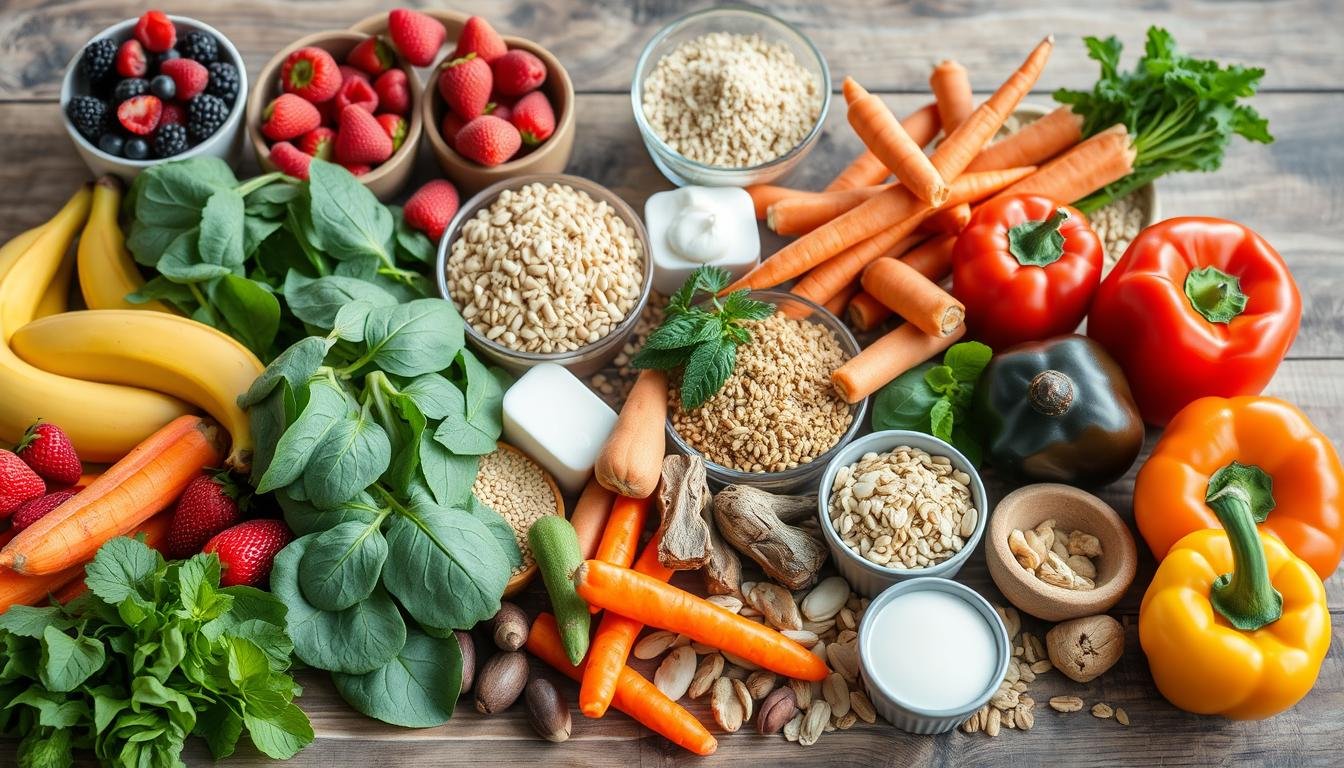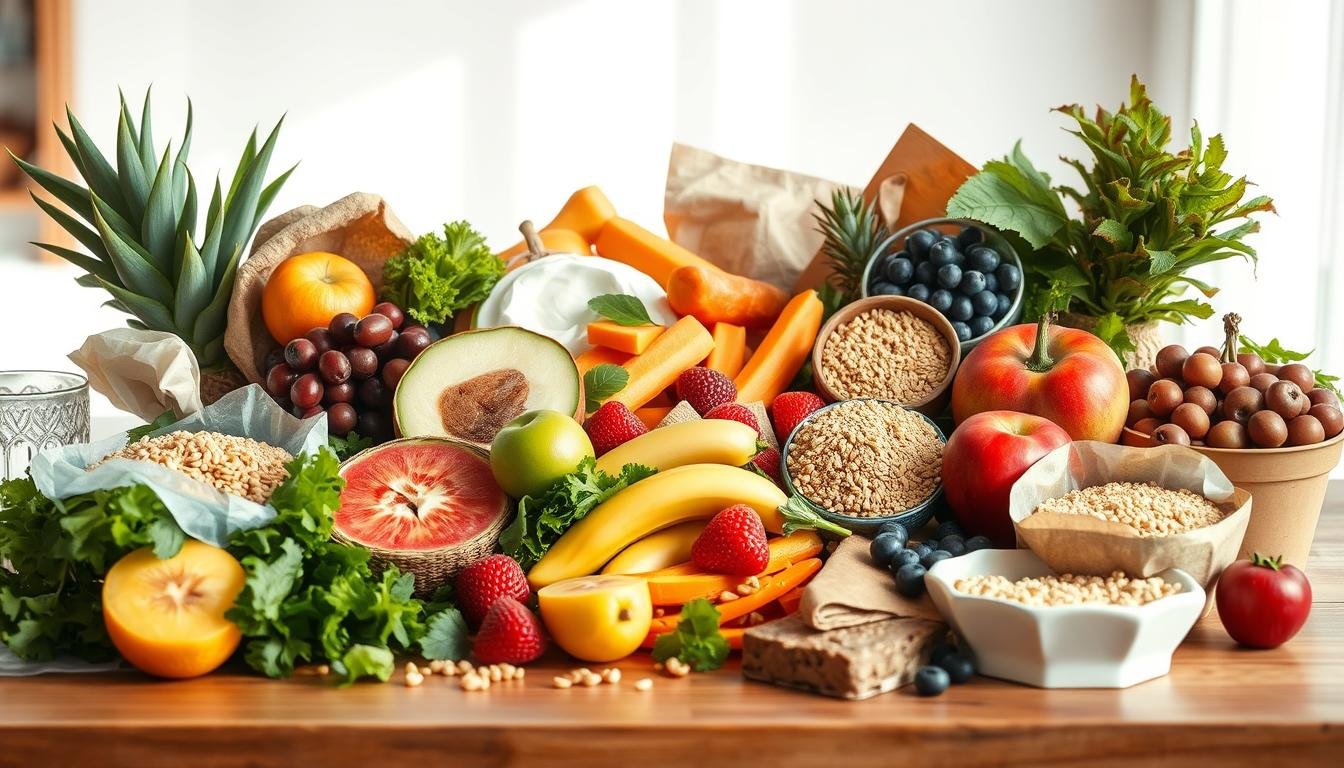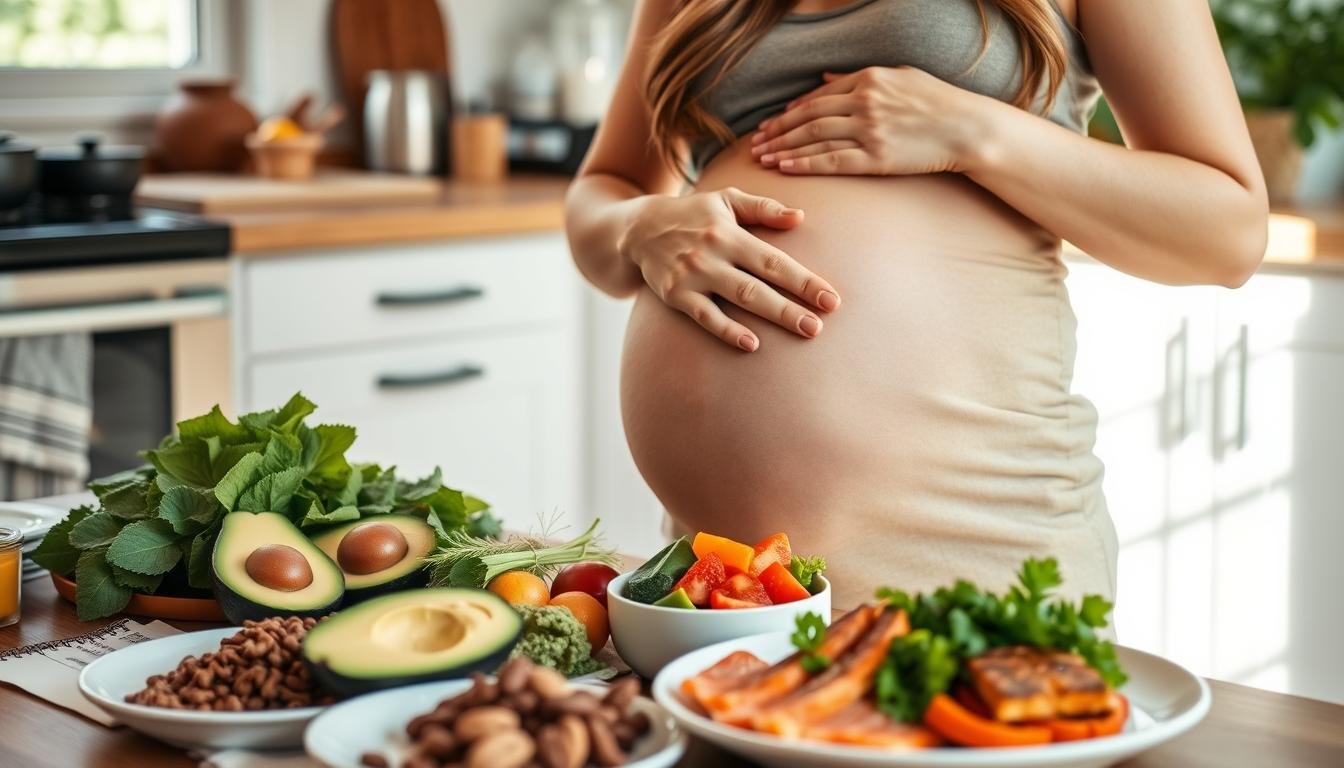Pregnancy is a time of joy and responsibility, including choosing a healthy diet. Expectant mothers often ask about safe food choices. It’s key to pick diets that are good for both mom and baby.
Good nutrition is vital during pregnancy. Women in their twenties have a 25-30% chance of getting pregnant each month. This chance drops to about 5% for those in their forties. This shows why a balanced diet is so important.
Emily Oster’s 2013 book “Expecting Better” gives insights on safe foods during pregnancy. It’s a great resource, along with advice from doctors, for making diet choices.
Pregnancy changes how the body uses nutrients and metabolizes food. A well-thought-out diet helps the baby grow and keeps weight gain in check.
When looking at diets for pregnancy, remember everyone is different. Always talk to a doctor before changing your diet during this important time.
Understanding Prenatal Nutrition: The Basics
Prenatal nutrition is crucial for your baby’s growth and your health. Knowing what foods are safe during pregnancy is important. Let’s look at the basics of prenatal nutrition.
Essential nutrients for a healthy pregnancy
A healthy diet during pregnancy should include these key nutrients:
- Folic acid: Prevents neural tube defects
- Iron: Supports blood production
- Calcium: Aids bone development
- Omega-3 fatty acids: Promotes brain and eye growth
Recommended calorie intake during pregnancy
As your pregnancy grows, so does your calorie need:
- Second trimester: Add about 340 calories per day
- Third trimester: Increase by 450 calories daily
Women with gestational diabetes need a special diet. This diet helps control blood sugar and provides the right nutrients.
The importance of balanced eating
Eating a variety of foods is essential for a healthy pregnancy. Include:
- Fruits and vegetables
- Whole grains
- Lean proteins
- Healthy fats
Stay away from raw fish, unpasteurized dairy, and high-mercury fish for safety. By following these tips, you’ll have a nutritious pregnancy.
Common Diets Explained: What's Safe During Pregnancy?
Pregnancy means making changes, including what you eat. It’s key for moms-to-be to know which diets are safe. Some diets can be tweaked, but others might not be good. Let’s look at some diets and if they’re okay during pregnancy.
The Mediterranean diet is full of fruits, veggies, whole grains, and healthy fats. It’s safe and good for pregnant women. It helps with the baby’s growth and can help manage weight gain. Women on this diet have a lower chance of getting gestational diabetes, a big problem in the U.S.
Vegetarian and vegan diets can work if you plan well. You need to make sure you get enough vitamin B12, iron, and omega-3s. Pregnant women on these diets should talk to a nutritionist to avoid missing out on important nutrients.
Low-carb and keto diets are not good during pregnancy. They can cause nutrient shortages and ketosis, which is bad for the baby. Instead, aim for a balanced diet to support healthy weight gain, usually 10 to 12.5 kg.
| Diet Type | Safety During Pregnancy | Key Considerations |
|---|---|---|
| Mediterranean | Generally Safe | Rich in essential nutrients, may reduce gestational diabetes risk |
| Vegetarian/Vegan | Safe with Planning | Careful supplementation needed for B12, iron, omega-3s |
| Low-Carb/Keto | Not Recommended | Risk of nutrient deficiencies and ketosis |
Good nutrition is key during pregnancy. Always check with your doctor before starting or sticking to any diet. This makes sure you and your baby get what you need.
The Mediterranean Diet and Pregnancy
The Mediterranean diet is great for pregnant women. It includes lots of fruits, veggies, whole grains, and lean proteins. These foods meet the nutritional needs of expectant mothers.
Benefits for Expectant Mothers
Eating like a Mediterranean during pregnancy can lower the risk of gestational diabetes and preeclampsia. It also helps manage weight gain. This is good for both the mom and the baby.
Adapting for Pregnancy
To make the Mediterranean diet safe for pregnancy, eat more calcium. Use dairy or fortified plant-based options. Also, eat more lean meats, fish, and legumes to help the baby grow.
Potential Concerns and Modifications
Be careful with high-mercury fish while on the Mediterranean diet. Choose low-mercury fish like salmon or sardines. Make sure to wash raw veggies well for safety. You’ll also need to eat more to meet your calorie needs during pregnancy.
| Food Group | Recommended Intake | Pregnancy Modifications |
|---|---|---|
| Fruits and Vegetables | 6-8 servings daily | Increase to 8-10 servings |
| Whole Grains | 4-6 servings daily | Add 1-2 extra servings |
| Lean Proteins | 2-3 servings daily | Increase to 3-4 servings |
| Dairy/Calcium-rich foods | 2-3 servings daily | Increase to 3-4 servings |
Conclusion: Balancing Nutrition and Safety for a Healthy Pregnancy
Deciding what’s safe during pregnancy can be tricky. A healthy diet is crucial for both mom and baby. Eating foods rich in nutrients helps the baby grow and keeps the mom healthy.
Many diets can work during pregnancy, but meeting nutritional needs is key. The Mediterranean diet is great because it includes lots of fruits, veggies, whole grains, and healthy fats. For those who follow vegetarian or vegan diets, it’s important to make sure they get all the necessary nutrients.
Diets like low-carb and keto might not be safe, so talk to your doctor first. No matter your diet choice, working with your healthcare team is important. They can help create a safe plan just for you. Regular check-ups allow for any needed changes, ensuring you and your baby get the best nutrition.





